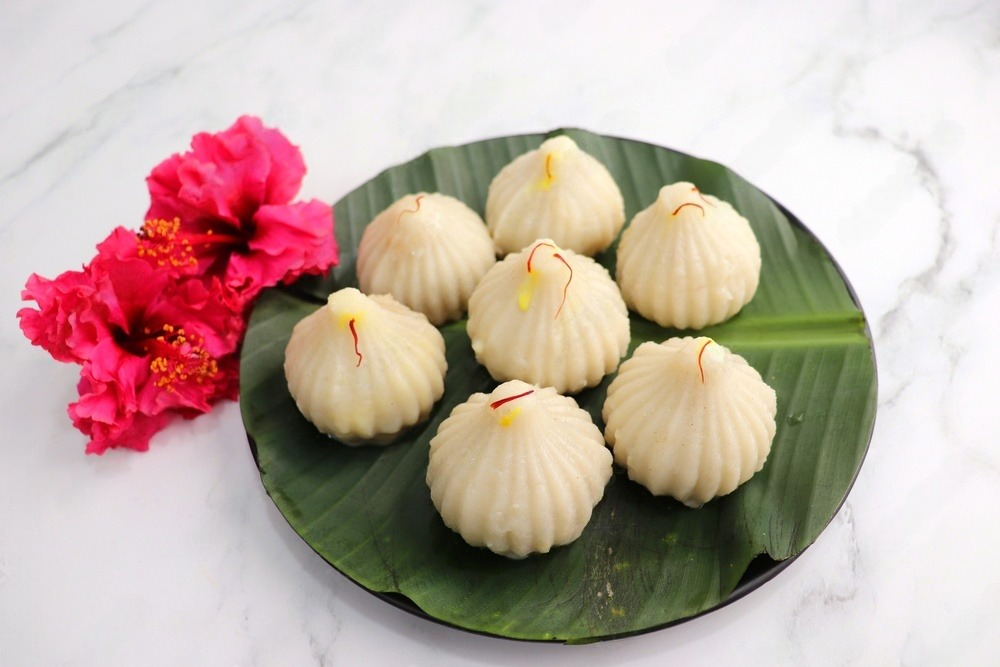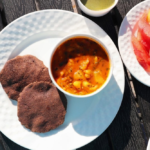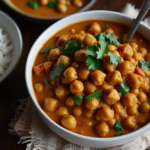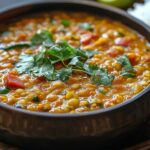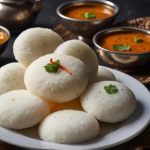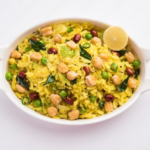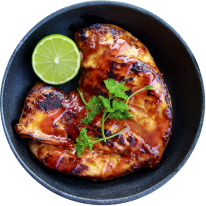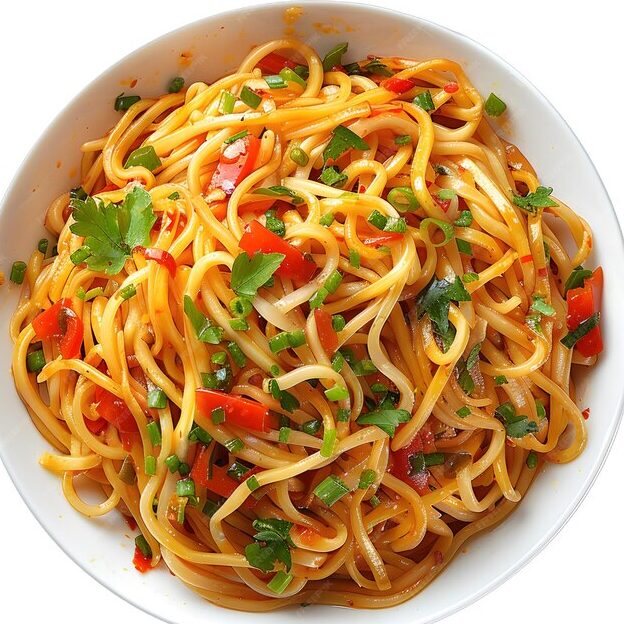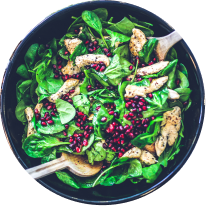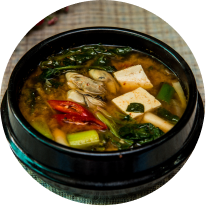Ganesh Chaturthi is one of the most widely celebrated festivals in India. It is dedicated to Lord Ganesha, the remover of obstacles and the god of new beginnings. This auspicious occasion is marked by devotion, prayers, music, and, of course, delectable sweets. Among the many traditional sweets prepared during the festival, Modak holds a special place. It is believed to be Lord Ganesha’s favourite offering, making it an essential part of the Ganesh Chaturthi celebrations.
In this blog, I’ll walk you through an authentic and easy-to-follow recipe for Ukadiche Modak, a traditional steamed dumpling filled with a sweet coconut and jaggery mixture. We’ll also explore variations of Modak to add a creative twist to your festive preparations. So, let’s get started with this festive favourite!
Table of Contents:
- Introduction: Why Modak is Special for Ganesh Chaturthi
- Ingredients for Ukadiche Modak
- Step-by-Step Modak Recipe
- Tips for Making the Perfect Modak
- Variations of Modak for Ganesh Chaturthi
- Conclusion: Adding Love and Devotion to Your Modak Recipe
—
1. Introduction: Why Modak is Special for Ganesh Chaturthi
Ganesh Chaturthi is incomplete without offering Modaks to Lord Ganesha. As per Hindu mythology, Lord Ganesha has an insatiable love for sweets, and Modaks are believed to be his favourite. Devotees offer him 21 or 108 Modaks, symbolising their devotion and seeking his blessings for happiness, prosperity, and removing obstacles.
The most traditional type of Modak is the Ukadiche Modak, which is a steamed rice dumpling filled with a sweet coconut-jaggery mixture. The steaming technique makes it a healthier option compared to fried versions, and it has a unique soft texture that melts in your mouth. Apart from the authentic Modak, there are several modern variations like fried Modak, chocolate Modak, and more that have gained popularity in recent years.
Now that we know why Modak holds such an esteemed place in this festival, let’s dive into the details of how to make the perfect Ukadiche Modak.
—
2. Ingredients for Ukadiche Modak
Before we get into the recipe, here’s a list of ingredients you’ll need to make about 12-15 Ukadiche Modaks. You can easily scale the recipe based on your requirements.
For the Outer Covering:
– 1 cup Rice flour (preferably fine)
– 1 cup Water
– 1 tsp Ghee (clarified butter)
– A pinch of Salt
For the Sweet Coconut Filling:
– 1 cup Grated fresh coconut
– ¾ cup Jaggery (grated or powdered)
– ½ tsp Cardamom powder (Elaichi)
– 1 tsp Poppy seeds (optional, for added texture)
– 1 tbsp Chopped nuts (cashews and almonds, optional)
3. Step-by-Step Modak Recipe
Let’s break down the process into simple steps to make the preparation easy for you.
Step 1: Preparing the Sweet Coconut Filling
- Heat a pan on medium flame, and add the grated coconut and jaggery to it.
- Stir continuously until the jaggery melts and mixes with the coconut. You will notice the mixture turning golden-brown and aromatic.
- Once the jaggery and coconut combine, add cardamom powder and poppy seeds (if using). You can also add finely chopped nuts for extra richness.
- Cook for 4-5 minutes until the filling thickens slightly. Make sure the mixture isn’t too wet, or it may leak while shaping the Modaks.
- Turn off the heat and let the filling cool down completely.
Step 2: Making the Rice Flour Dough
- In a saucepan, boil 1 cup of water with a pinch of salt and 1 tsp of ghee.
- Once the water comes to a boil, gradually add the rice flour while stirring continuously to avoid lumps.
- Turn off the heat and cover the pan with a lid. Let the dough rest for 5 minutes to cool slightly.
- Transfer the dough onto a flat surface or a large bowl and knead it well to form a soft, smooth dough. If the dough feels dry, sprinkle some water and continue kneading until smooth.
- Cover the dough with a damp cloth to prevent it from drying out.
Step 3: Shaping and Steaming the Modaks
- Divide the dough into small, equal-sized balls. You can grease your palms with a little ghee to make the process easier.
- Flatten each dough ball into a small disc using your fingers. Make sure the edges are thinner than the centre, as this helps in easy folding later.
- Place a spoonful of the cooled coconut jaggery filling in the centre of the disc.
- Gently start pleating the edges of the dough, then bring them together at the top to seal the Modak, giving it a beautiful conical shape. If you’re new to this, you can use a Modak mould to achieve perfect results.
- Once all the Modaks are shaped, steam them in a steamer for about 10-15 minutes, or until the outer cover turns slightly translucent.
—
4. Tips for Making the Perfect Modak
Making Modak for the first time can feel intimidating, but with these tips, you’ll get it just right:
- Rice Flour Quality: Use fine rice flour for a smooth dough. You can also lightly roast the flour before using it to enhance its texture.
- Kneading: Knead the dough when it is warm but not too hot, as this will ensure it stays soft and pliable.
- Steaming: Place a muslin cloth or banana leaf at the base of the steamer to prevent the Modaks from sticking.
- Storage: Modaks taste best when served fresh, but you can store them in an airtight container for up to a day. If needed, reheat them by steaming for 5 minutes before serving.
—
5. Variations of Modak for Ganesh Chaturthi
While the traditional Ukadiche Modak is the star of the festival, there are several other varieties that you can prepare for a modern twist. Here are some interesting options:
a. Fried Modak
Fried Modak offers a crunchy texture with the same coconut-jaggery filling. The outer dough is prepared using wheat flour instead of rice flour, and the Modaks are deep-fried to golden perfection.
b. Chocolate Modak
For a contemporary and indulgent take on Modak, replace the traditional filling with a mixture of chocolate, nuts, and condensed milk. This version is a favourite among kids!
c. Mawa Modak
Mawa or khoya Modak is made using condensed milk solids (khoya), sugar, and cardamom. It’s rich, creamy, and simply melts in your mouth.
d. Dry Fruit Modak
This variety includes a filling of finely chopped dry fruits like almonds, cashews, pistachios, and dates. It’s a nutritious and rich version that adds a royal touch to the festival.
—
6. Conclusion: Adding Love and Devotion to Your Modak Recipe
Ganesh Chaturthi is a festival that brings families together in celebration, devotion, and joy. While offering Modak to Lord Ganesha is a symbol of devotion, preparing it with love and sharing it with loved ones adds to the festive spirit.
Whether you stick to the traditional Ukadiche Modak or explore modern variations like chocolate or dry fruit Modaks, the essence of the festival lies in the love and care with which you prepare these delightful sweets. Make this Ganesh Chaturthi extra special by trying out this recipe and celebrating with a heart full of gratitude and devotion.
May Lord Ganesha bless you and your family with prosperity, happiness, and wisdom!
Happy Ganesh Chaturthi!
—
Frequently Asked Questions (FAQs)
- Can I make Modak without a mould?
Yes, you can shape Modaks with your hands using the pleating technique. However, mould makes it easier, especially for beginners.
- Can I replace jaggery with sugar?
While jaggery is the traditional sweetener for Modak, you can substitute it with sugar if you prefer, though the flavour will differ slightly.
- How long can Modaks be stored?
Modaks taste best when fresh but can be stored in an airtight container for up to a day. For longer storage, fried Modaks are a better option.



